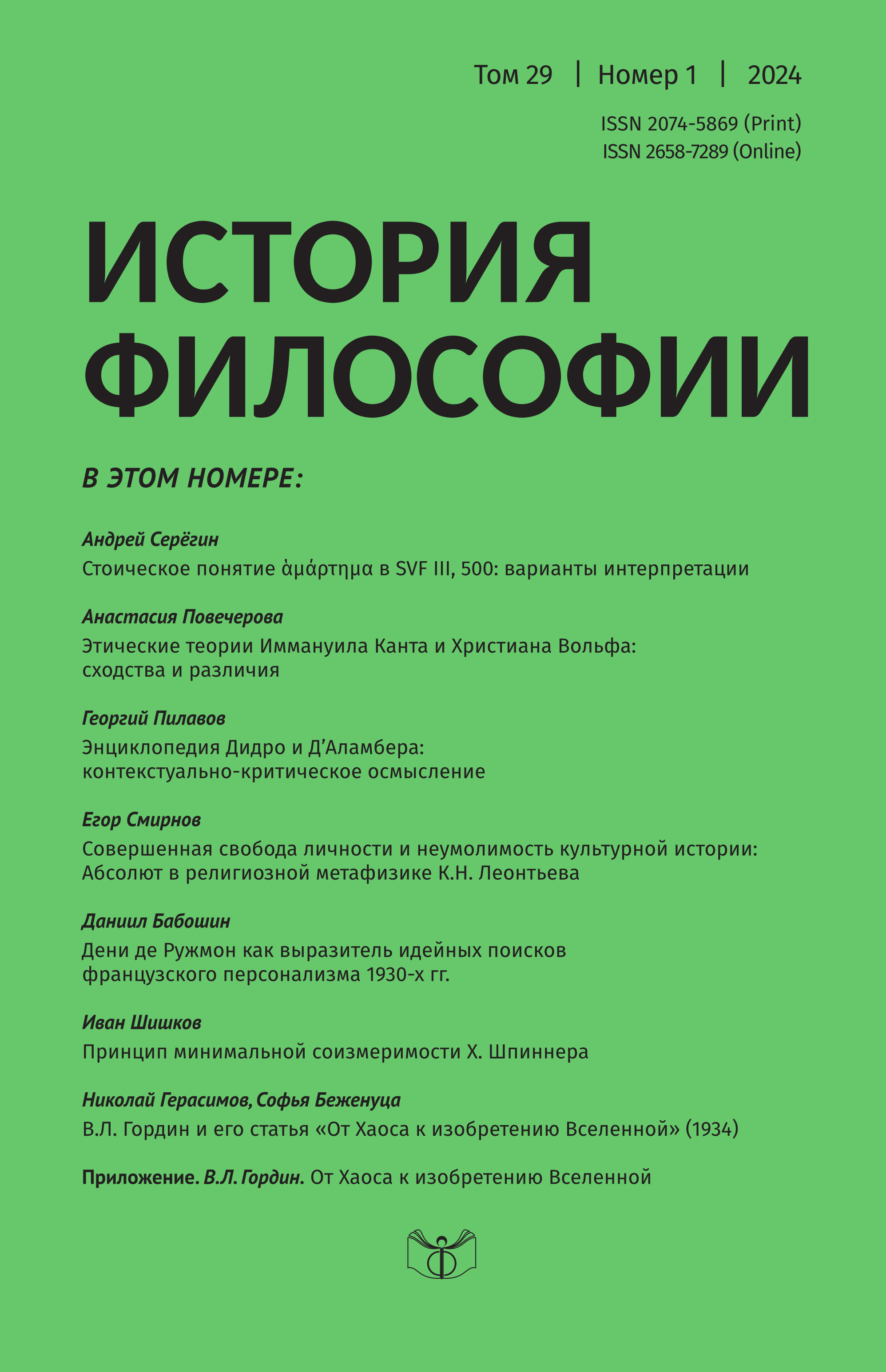Проблема происхождения и сущности ничто в христианской концепции творения мира Богом
DOI:
https://doi.org/10.21146/2074-5869-2024-29-1-17-28Ключевые слова:
гностицизм, творение из ничего, ничто, неоплатонизм, Ориген, Николай Кузанский, эманацияАннотация
В данной статье авторы предлагают оригинальный взгляд на развитие концепций творения в истории христианской мысли. Акцентируется значение метафизики гностического христианства для развития космогонических представлений в европейской философии. Космогония Евангелия Истины осмысляется как серьезная философская альтернатива ортодоксальной концепции творения мира из ничего и неоплатонической концепции эманации. Авторы указывают на преемство между концепцией творения в текстах гностического христианства и последующими философскими системами, выраженными в текстах Оригена, Евагрия Понтийского, Ареопагитик, Мейстера Экхарта, Николая Кузанского и др. Особое внимание в статье уделено осмыслению понятия «ничто» в контексте развития космогонических систем.

